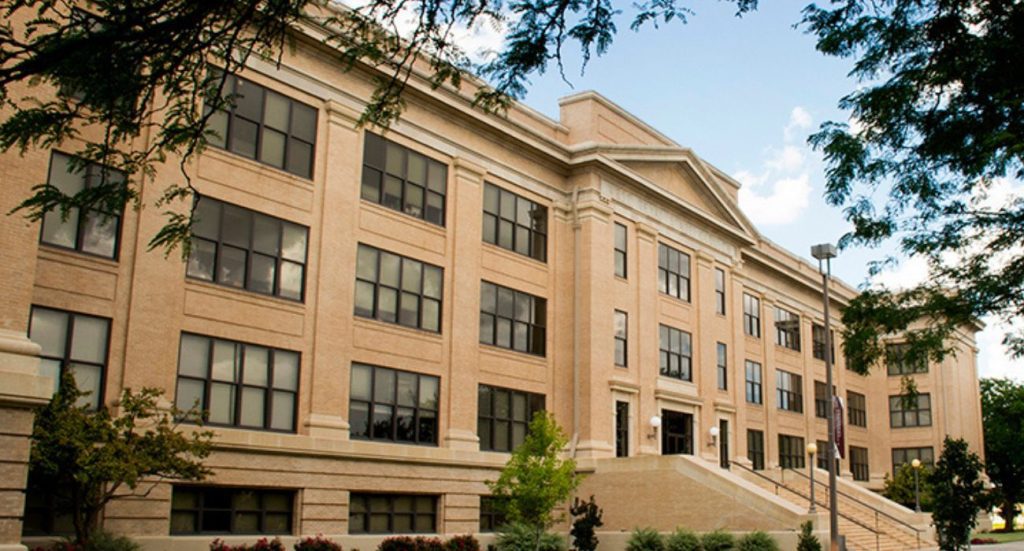The Fifth Circuit Court of Appeals listened to spoken arguments this week from a lawyer representing a group of West Texas A&M University students who were not allowed to have a drag show on campus last year.
As previously mentioned by The Dallas Express, West Texas A&M canceled a planned drag show titled “A Fool’s Drag Race,” which was intended to be a fundraiser for The Trevor Project, a non-profit organization focused on advocacy for LGBTQ youths.
“The Trevor Project is the leading suicide prevention and crisis intervention non-profit organization for LGBTQ+ young people. We provide information & support to LGBTQ+ young people 24/7, all year round,” the group’s website states.
University President Walter Wendler issued an online statement on March 21, 2023, explaining why he denied the request to hold the drag show on campus.
“WT endeavors to treat all people equally. Drag shows are derisive, divisive, and demoralizing misogyny, no matter the stated intent. Such conduct runs counter to the purpose of WT. A person or group should not attempt to elevate itself or a cause by mocking another person or group. As a university president, I would not support’ blackface’ performances on our campus, even if told the performance is a form of free speech or intended as humor,” Wendler wrote.
The Foundation for Individual Rights and Expression (FIRE) filed a lawsuit against Wendler on behalf of Spectrum WT, the university’s LGBTQ organization that had planned the drag show. The plaintiffs requested a preliminary injunction, which U.S. District Judge Matthew Kacsmaryk rejected in September, DX reported.
In opening statements, the plaintiff’s attorney, J.T. Morris, claimed that no idea or viewpoint is safe based on the university’s actions.
“If free expression at our public universities can teeter on the attitudes and assumptions of campus officials, then no idea, no message, no viewpoint is safe, regardless of where it falls on the political or cultural spectrum,” Morris said, per The Texan. “Thankfully, the First Amendment, not the personal views of campus bureaucrats, dictates free expression at our public universities.”
One of the judges on the appeals court panel mentioned the similarity of the case to the Supreme Court case Christian Legal Society (CLS) v. Martinez, “which seems to specifically say that we have to defer to university administrators, particularly when it comes to matters of inclusion,” The Texan reported.
Morris asserted that the Supreme Court case was the mirror opposite of the one before the panel, claiming that university administrators imposed “viewpoint-based and content-based restrictions” when banning the drag show. Morris said that protected expression was violated and that the decision was made based on the view of the university president and not university policies.
The judge in the case pushed back, asking, “What’s the view that’s being excluded here?”
“To my understanding, it’s a particular type of expression that is being excluded, not a particular viewpoint … which is why it seems to me CLS is fairly similar,” the judge said, per The Texan.
The judge asked if the university had a policy against naked dancing or public nudity, and if that would be considered acceptable regardless of viewpoint. Morris said yes.
Morris indicated that if the court approves Wendler’s ban, FIRE may take the case to the Supreme Court. The plaintiffs had previously requested SCOTUS to overturn the university’s ban, but that request was denied on March 15.
According to ABC 7 News, Joseph N. Mazzara, a lawyer from the Texas Attorney General’s Office representing Wendler, said, “They can do everything they want, they can say all the speech they want to [say]. They just can”t do this one particular thing in this one particular place.”
Mazzara compared the ban on drag shows to a prohibition on skateboarding on national monument grounds or some other specific type of conduct, arguing that there was no ban on a particular kind of speech.
DX reached out to FIRE and West Texas A&M for comment but did not receive a response.



